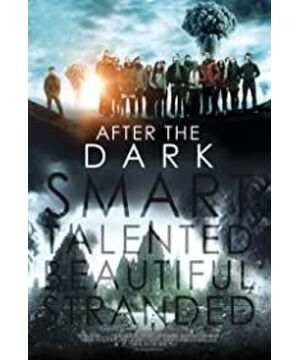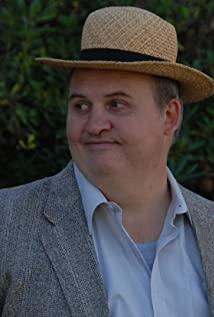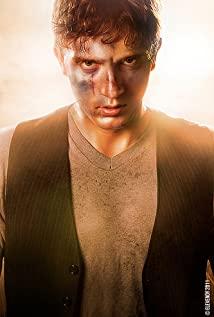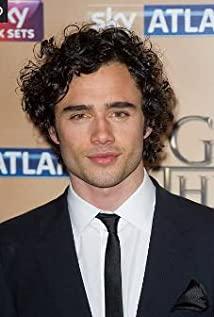Philosophy, an unpredictable and neurotic word, is actually just a kind of thinking about life and thinking about eating. It seems to be reined in, ethereal and free, but it is actually the same as the assumption of the right to enter the sanctuary in the film. No matter how you survive, you must take on the social responsibility of human beings: the continuation of the race and the reconstruction of civilization.
Of course, from a philosophical point of view, these two social responsibilities are actually self-restraints that humans take for granted and impose historical missions on themselves. Because in our oriental philosophy, the reason why Meng Die's Zhuangzi occupies an important seat is because he broke through the shackles of taking things for granted, sees through everything, and sings while singing.
The film itself also adopts this kind of philosophical thinking at the end. Although the logic is full of loopholes, because the disaster itself is a hypothesis, this is the best ending that can be imagined.
But on another level, all assumptions are actually a false start, because when things come to an end, the real reaction is basically instinct. Just like the questions mentioned at the beginning of the film:
the train is coming, and there is one person lying on the left and four people lying on the right on the track. The first reaction of ordinary people is to kill one and save four, and feel that they have done a good thing. And if there's a fat man standing beside the track who can padded the train up and diverted, would you choose to push him onto the track? Although they sacrificed one to save many, everyone's first reaction was unbelievable "No~!!" Rational and emotional, who can tell which is better?
Another story about don't test, you're about to fall from the top of a building, you call your best friend to rescue you, but your friend backs away for fear of being dragged down, and you fall and don't die. So how are you willing to choose, hopefully never testing them? Or choose a lifetime of ignorance? In the film, a child says that he chooses to know the truth because there will always be new friends, and the teacher's answer is wonderful "then you will fall down another building".
On the surface, this seems to be philosophy, the so-called 'Ignorance is Blessing Paradox': Exploring is destined to suffer, while self-anesthesia will die without knowing how. However, just like this film, the entire architectural design and assumptions are set by this suicidal teacher, and his tragic setting is doomed to tragic results. For example, in this fall story, no student came forward to say that his chosen setting was that his friends would save him.
Just like the seemingly beautiful ending of the film, they assumed for the third time that they gave up the so-called rationality and chose human nature. However, these surviving poets, singers, wine tasters, etc. have been busy because there are no so-called technical talents such as farmers and carpenters.
Look, although JAck started the film with the classic words of philosophy and reality, he was still led to death within the frame set by the teacher.
All assumptions are valid, but all assumptions are unreliable.
This brings me to the ideal, a dream that encourages me to continue living. Some people are only idealistic, and they like to struggle and talk the most; some people have no goals and are confused; some people are not obsessed with anything and move forward silently, as if they were born. Who is happiest?
In fact, my favorite character in the film is not the heroine with the best philosophy course, nor the male protagonist who seems to have unlimited potential, but the most inconspicuous French fries. Under the historical requirement that the child must reproduce human offspring, the role drawn by this child is a barren carpenter who is doomed to die. However, instead of using his identity as a carpenter to ask to enter the shelter, he chose to risk the risk of being corroded by radiation and die, and floated to a beach with the last six girls left outside the shelter, night and night. Sheng song.
It's the only kid out of the box. He gave himself a sweet dream when all the other children made painful choices and died because of the unreliable assumption of multiplying humanity and rebuilding civilization.
Ideal to life is actually the same as philosophy to reality. Although it is like 'masturbation to sex', the former seems to be better and more egoistic, but in fact, everyone is psychological, and the latter is irreconcilable in terms of social mission or self-structure. lack. No one can break away from society and focus on ideals, and life without ideas always seems to be so boring.
Therefore, ideals are to life as masturbation is to sex, but what many people do not understand is that under the lofty proposition of philosophy, in fact, between the two, we really need either.
--------------------------------
View more about After the Dark reviews











